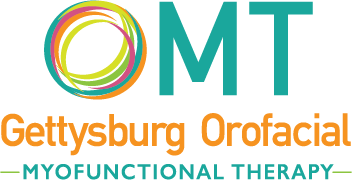Bites with Braces: Foods You Can Eat (And What to Avoid)
Whether you, your teenager, or your preteen is working toward a bright smile with braces from Gettysburg Orthodontics, figuring out what to eat can be tricky, especially at first. The brackets and wires inside the mouth can make it feel sore and sensitive, making it difficult to chew. However, eating is still essential, and learning how to eat with braces takes some time. Let’s explore what foods you can (and shouldn’t) eat with braces.
Approach with Caution
It's essential to be mindful of the foods you eat during the adjustment period, as some foods can get stuck in braces and damage your investment in your future smile. But don’t worry – plenty of foods are still on the menu! They just might require a little extra preparation, cooking, or chopping.
Foods to Eat
Fortunately, some of the softest and most comforting foods are also the best choices for the first few days of braces. Many of these foods are also excellent nutritional choices, so it’s a win-win situation!
Braces-approved foods include:
· Bananas
· Oatmeal
· Scrambled eggs
· Pancakes and French toast
· Soup (but make sure it’s not too hot)
· Pasta (especially soft and small shapes)
· Fish, prepared so that it flakes easily
· Soft-cooked, steamed, or boiled vegetables
· Mashed potatoes
· Yogurt
· Ice cream (its cold temperature can reduce soreness)
Foods to Avoid
On the flip side, certain foods can pose a risk to your braces by damaging brackets, dislodging wires, or leading to other complications, which could ultimately prolong treatment.
Avoid these foods while you have braces:
· Hard, chewy, or sticky candy
· Crunchy foods such as raw carrots
· Hard snack foods such as pretzels, nuts, and popcorn
· Corn on the cob
· Heavy, hard breads such as bagels and pizza crust
· Thick or chewy cuts of meat
· Sugary foods and drinks because sugar contributes to plaque and brushing away this sticky film is trickier with braces
Additional Eating Tips
Because eating in general is a little different with braces, keep the following tips in mind.
· Stay hydrated. Drinking water helps keep your mouth clean by washing away food particles and acid residue. Rinse and swish after every meal. A water flosser can be a good investment and a fun tool for this purpose.
· Do not chew on ice.
· Start with small bites. Cutting food into smaller-than-usual pieces is a good idea at first. This lessens the need to bite into foods with the front teeth – something that should be avoided with new braces. Instead, it’s best to chew with back teeth, which are stronger.
· Avoid extreme temperatures. Foods that are either steaming hot or spine-tingling cold can be especially sensitive to teeth.
· Be patient! Developing the habit of chewing carefully with braces takes time, but it's not a life long commitment.
Although it can be challenging to refrain from consuming some foods (especially if they're favorites), it's worth it in the long run. After your short journey with braces, you will have a perfect smile for life. Then, you can enjoy your favorite treats again!






